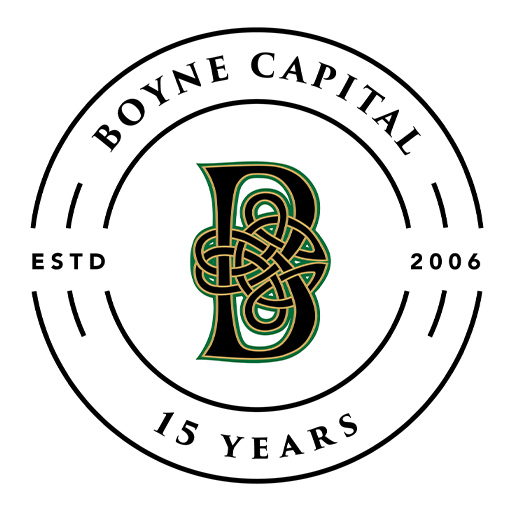Perspectives
Gain deeper insight with selected articles and analyses from our senior leadership.
The following perspectives are intended for business owners and not as investment advice. Business owners should check with their own advisors before following any of our guidance. Please see Terms of Use and Disclosures for more information.

Up Your Game with an Effective Budget
You’ve built a great business. Chances are you are pretty good at selling your services, buying products, or selecting your service providers. You may also have your finger on the pulse of the checkbook and maybe even have some experience in HR and IT. However, if you are a small business owner or entrepreneur, you may never have developed a detailed annual budget.
Employee Retention Credits…Are You Leaving Money on the Table?
Boyne Capital provides more than just capital for its portfolio companies. One example is the access to expertise that can uncover where problems lie, improve operations, and maximize tax benefits in an ever-changing legislative environment.
Is Your EBITDA Defensible?
In over 20 years as a respected Private Equity firm, Boyne has partnered with a wide range of middle-market companies. But our involvement goes beyond providing capital; we work alongside our partners to develop and execute strategies that strengthen the business, increase revenue and maximize its value – all of which requires sound financial reporting.
Does Your Sell-Side Due Diligence Address These Critical Issues?
Selling a business can be a particularly difficult process. Navigating the seemingly endless list of action items that will maximize the value of your company can be daunting. With over 20 years in M&A, Boyne Capital has guided more than 40 client companies through this turbulent process. From strategic planning to due diligence preparation to post-sale integration, one thing is certain, no two sales are alike.
Is Your Company Tech Stack a Liability?
As a leader in the middle-market private equity space for nearly 20 years, Boyne Capital has helped hundreds of businesses grow and prosper through good times and bad. We’ve seen it all and one thing is clear, if your business isn’t growing, you’re probably falling behind – pointing the way to a sale, acquisition or other growth strategy.
Exit or Expand… Tips and Observations for Business Owners in Transition
Our most recent series of insights for business owners focuses on how to prepare your company for a transition, but the recommendations found in these articles apply to any business at any stage in its lifecycle. Whether your game plan is an outright sale leading to retirement or engaging in a growth strategy to bolster your business, Boyne Capital’s experience in building its portfolio of companies and helping guide their success makes these articles a must-read.
Organic growth or through acquisition?
Growth, within the framework of a business environment, is generally good. It sure beats a business becoming stale, which may lead to a decrease in sales and revenue. But what is the best growth strategy for your company? That is the dilemma facing many businesses today.
Selling Your Business? Here Are Boyne Capital’s Top Five Tips for a Successful Sale
There comes a time in every business owner’s life when he or she decides it’s time to sell the company. The reasons are as varied as the outcomes. The business sale process for each has a similar cadence, and it entails a combination of goal setting, preparation and proper execution.
Boyne Capital’s Financial Health Checklist: How Solid Is Your Business?
Overview: Getting your business’s financial health in shape is critical to its long-term viability and requires a number of steps. A sound financial reporting system provides a true picture of how your business is performing, and whether it is as profitable as you think.
Growth through Acquisition - Targeting the Right M&A Candidate
If you’re not moving forward, you’re falling behind. In today’s hyper-competitive business environment, every business is faced with the reality of having to grow and adapt, failing to do so is a sure way to go out of business. That’s why smart business leaders are continually involved in long-term strategic planning.
Selection of Counsel
We are often asked by our friends, intermediaries and future business partners what advice we would give to them in selecting counsel for the sale of their company. This is a paramount issue for any seller, since the sale of a company can be one of the most significant events in the life of an entrepreneur, and the selection of the right counsel can be critical to the success of the transaction.
Good Governance Is Good Business, Especially for Family-Owned Enterprises
Family businesses are the heartbeat of the US economy. Their contribution to the nation’s GDP, job creation and employment are unmatched. Indeed, 35% of the Fortune 500 companies are family businesses, but those companies have beat the odds.
The Quality of Your Partner Shows in Tough Times
As an Independent Sponsor who launched his firm in 2006 and started building a portfolio of companies prior to the Great Recession, I see many similarities to the current economic crisis resulting from the pandemic. While the genesis of these downturns and the shape of their recovery may differ dramatically, the impact on investments and the response of investors is likely to be similar.
A Match that Benefits Both
The value of Independent Sponsors to capital sources, such as Private Equity firms like Boyne, is their focused knowledge of specific industries, the relationships they have within those sectors, their ability to identify and bring deals to the table that have already passed an initial vetting process, and the exclusivity that usually attends these deals.
Finding the Right Match
Once an Independent Sponsor commits to looking for a Private Equity partner to fund a deal, what’s next? How do they choose the right partner? Not all Private Equity firms are the same. A PE firm’s size, geographic location, industry focus, desire to partner, and other factors help determine the right candidate.




